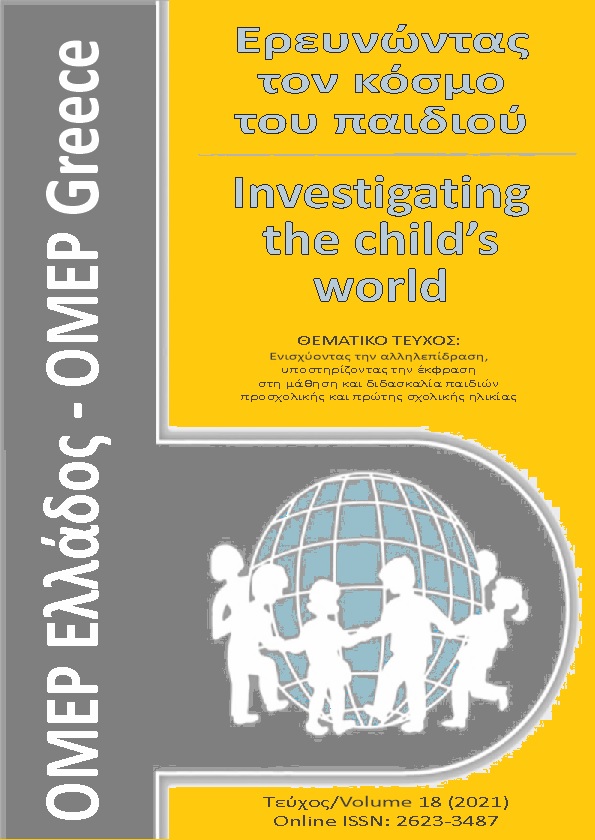Promoting resilience in kindergarten. Teachers’ beliefs and reported practices.

Abstract
In this ever-changing era, kindergarten seems to be the appropriate context for building resilience in children. Kindergarten teachers play a key role in this direction, through their daily interaction with children in the classroom and through the programs and activities they plan and implement. The research we conducted aims to study in depth kindergarten teachers’ reported actions and strategies to promote the resilience of children in their classrooms, focusing on the issue of positive interactions. The practices they report that they follow daily in their classrooms also highlight the way they perceive the issue of promoting resilience in kindergarten in general. Fifteen kindergarten teachers working in public kindergartens in Northern Greece participated. In our qualitative survey, data was gathered using semi-structured interviews. The content analysis followed showed that, according to the kindergarten teachers, in order to promote resilience in the kindergarten the development of positive relationships and cooperation between all those involved in the school unit is of particular importance. They particularly stressed on practices for developing positive personal relationships between the kindergarten teacher and children but also amongst children, practices for meaningful interpersonal supportive relationships between colleagues and management, and practices for quality family-school interaction. This was actually the factor that teachers referred to as the most crucial for the development of all other relationships.
Article Details
- How to Cite
-
Hatziioannidou, V., & Penderi, E. (2021). Promoting resilience in kindergarten. Teachers’ beliefs and reported practices. Investigating the child’s World, 18, 111–121. https://doi.org/10.12681/icw.30026
- Issue
- Vol. 18 (2021)
- Section
- Scientific articles & educational projects

This work is licensed under a Creative Commons Attribution-NonCommercial 4.0 International License.
Authors who publish with this journal agree to the following terms:
· Authors retain copyright and grant the journal right of first publication with the work simultaneously licensed under a Creative Commons Attribution Non-Commercial License that allows others to share the work with an acknowledgement of the work's authorship and initial publication in this journal.
· Authors are able to enter into separate, additional contractual arrangements for the non-exclusive distribution of the journal's published version of the work (e.g. post it to an institutional repository or publish it in a book), with an acknowledgement of its initial publication in this journal.
· Authors are permitted and encouraged to post their work online (preferably in institutional repositories or on their website) prior to and during the submission process, as it can lead to productive exchanges, as well as earlier and greater citation of published work.


